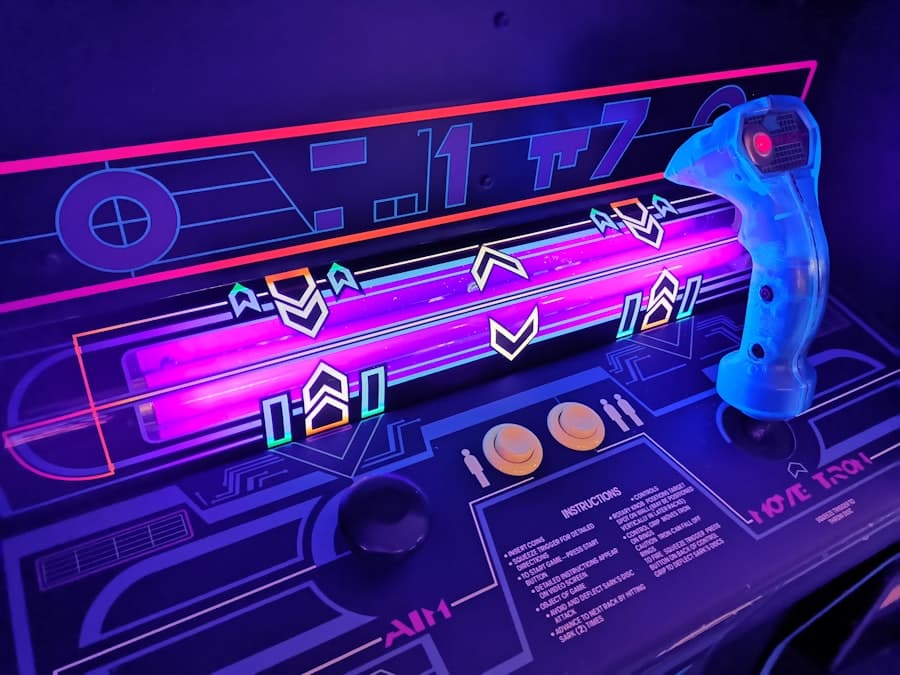The gaming industry has witnessed a remarkable transformation over the past few decades, evolving from simple pixelated graphics to immersive virtual worlds that captivate millions of players. As games become increasingly complex, the need for rigorous testing and quality assurance (QA) has never been more critical. Enter AI-powered game testing and QA tools, which leverage artificial intelligence to streamline the testing process, enhance accuracy, and ultimately improve the player experience.
These tools are designed to automate repetitive tasks, analyze vast amounts of data, and provide insights that human testers may overlook. AI-powered game testing tools utilize machine learning algorithms and data analytics to identify patterns and anomalies within a game’s code and performance metrics. This technology not only accelerates the testing process but also allows developers to focus on creative aspects of game design rather than getting bogged down by tedious testing procedures.
As the gaming landscape continues to evolve, understanding the role of AI in game testing and QA becomes essential for developers aiming to deliver high-quality products that meet player expectations.
Key Takeaways
- AI-powered game testing and QA tools are revolutionizing the way games are tested and quality assured.
- Using AI in game testing and QA can lead to improved efficiency, accuracy, and cost-effectiveness.
- AI-powered tools can improve efficiency and accuracy in game testing by automating repetitive tasks and identifying patterns and anomalies.
- AI plays a crucial role in identifying bugs and performance issues in games by analyzing large volumes of data and providing actionable insights.
- The future of AI-powered game testing and QA tools looks promising, with advancements in machine learning and data analysis.
The Benefits of Using AI in Game Testing and QA
One of the most significant advantages of incorporating AI into game testing and QA is the ability to enhance efficiency. Traditional testing methods often require extensive manual labor, which can be time-consuming and prone to human error. AI tools can automate repetitive tasks such as regression testing, allowing teams to run multiple test cases simultaneously without the need for constant human oversight.
This not only speeds up the testing cycle but also enables developers to release updates and new content more rapidly, keeping players engaged.
By analyzing vast datasets, AI algorithms can identify subtle bugs and performance issues that might escape human testers.
For instance, machine learning models can be trained on historical bug data to predict where new bugs are likely to occur in future releases. This predictive capability allows developers to proactively address potential issues before they impact the player experience. Additionally, AI can facilitate more thorough coverage of test scenarios, ensuring that edge cases and less common user interactions are adequately tested.
How AI-Powered Tools Improve Efficiency and Accuracy in Game Testing

AI-powered tools enhance efficiency in game testing through automation and intelligent analysis. Automated testing frameworks can execute thousands of test cases in a fraction of the time it would take a human tester. For example, tools like Appium or Selenium can be integrated with AI algorithms to perform automated UI testing across various devices and platforms.
This capability is particularly beneficial in an era where games are expected to run seamlessly on multiple devices, from consoles to mobile phones. In terms of accuracy, AI tools can analyze gameplay data in real-time, providing immediate feedback on performance metrics such as frame rates, load times, and memory usage. By employing techniques like anomaly detection, these tools can flag unusual patterns that may indicate underlying issues.
For instance, if a game experiences a sudden drop in frame rate during a specific sequence, an AI tool can quickly identify this anomaly and alert developers for further investigation. This level of precision not only helps in identifying bugs but also aids in optimizing game performance before launch.
The Role of AI in Identifying Bugs and Performance Issues in Games
AI plays a pivotal role in identifying bugs and performance issues that could detract from the gaming experience. Traditional bug detection methods often rely on manual testing or scripted tests that may not cover all possible scenarios. In contrast, AI-driven tools can simulate countless user interactions and gameplay scenarios, effectively uncovering bugs that might otherwise go unnoticed.
For example, reinforcement learning algorithms can be employed to create intelligent agents that play the game autonomously, exploring every nook and cranny while identifying glitches or inconsistencies. Furthermore, AI can analyze player behavior data to pinpoint performance issues that may arise during gameplay. By examining metrics such as player engagement, session length, and drop-off rates, AI tools can identify areas where players are experiencing frustration or difficulty.
For instance, if a significant number of players abandon a game after reaching a particular level, AI can help developers investigate whether there are design flaws or technical issues contributing to this trend. This data-driven approach allows for targeted improvements that enhance overall player satisfaction.
The Future of AI-Powered Game Testing and QA Tools
The future of AI-powered game testing and QA tools is poised for significant advancements as technology continues to evolve. One promising direction is the integration of natural language processing (NLP) capabilities into testing frameworks. This would enable testers to communicate with AI systems using everyday language, making it easier for non-technical team members to interact with testing tools and understand results.
Such advancements could democratize access to sophisticated testing methodologies, allowing smaller studios with limited resources to leverage AI effectively. Additionally, as machine learning models become more sophisticated, we can expect them to provide even deeper insights into player behavior and game performance. Predictive analytics could evolve to not only identify potential bugs but also suggest design changes based on player preferences and trends.
For instance, if an AI tool detects that players consistently struggle with a particular mechanic, it could recommend adjustments to improve gameplay flow. This level of insight would empower developers to create more engaging experiences tailored to their audience’s needs.
Challenges and Limitations of AI in Game Testing and QA

Despite the numerous benefits of AI in game testing and QA, several challenges and limitations must be addressed for widespread adoption. One significant hurdle is the initial investment required for implementing AI-powered tools. Developing or integrating sophisticated AI systems can be costly, particularly for smaller studios with limited budgets.
Additionally, there is often a steep learning curve associated with adopting new technologies, which may deter some teams from fully embracing AI solutions. Another challenge lies in the quality of data used to train AI models. If the training data is biased or incomplete, the resulting algorithms may produce inaccurate or misleading results.
For example, if an AI model is trained primarily on data from a specific genre of games, it may struggle to identify bugs in games that deviate from those patterns. Ensuring diverse and comprehensive datasets is crucial for developing reliable AI systems capable of effectively identifying issues across various game types.
Best Practices for Implementing AI-Powered Game Testing and QA Tools
To maximize the benefits of AI-powered game testing and QA tools, developers should adhere to several best practices during implementation. First and foremost, it is essential to define clear objectives for what the team hopes to achieve with AI integration. Whether the goal is to reduce testing time, improve bug detection rates, or enhance overall game performance, having specific targets will guide the selection of appropriate tools and methodologies.
Collaboration between developers and testers is also vital when implementing AI solutions. By fostering open communication between these teams, organizations can ensure that the insights generated by AI tools are effectively translated into actionable improvements within the game. Regular feedback loops should be established to refine both the testing processes and the AI algorithms themselves based on real-world experiences.
Case Studies: Successful Implementation of AI-Powered Game Testing and QA Tools
Several notable case studies illustrate the successful implementation of AI-powered game testing and QA tools within the industry. One prominent example is Electronic Arts (EA), which has integrated machine learning algorithms into its QA processes for titles like FIFA and Madden NFL. By utilizing AI-driven analytics to monitor player behavior during beta tests, EA has been able to identify potential balance issues and gameplay bugs before official releases.
This proactive approach has led to smoother launches and improved player satisfaction. Another compelling case study comes from Ubisoft’s use of AI in its testing processes for games like Assassin’s Creed Valhalla. The company employed an AI tool called “GameLab,” which analyzes gameplay footage to detect bugs automatically.
By processing vast amounts of video data from playtests, GameLab has significantly reduced the time required for manual bug hunting while increasing the accuracy of bug detection. This innovative approach has allowed Ubisoft’s development teams to focus more on creative aspects while ensuring a polished final product. In conclusion, as the gaming industry continues to evolve at a rapid pace, embracing AI-powered game testing and QA tools will be crucial for developers aiming to deliver high-quality experiences that resonate with players worldwide.
The integration of these advanced technologies not only streamlines testing processes but also enhances accuracy in identifying bugs and performance issues—ultimately leading to more engaging games that meet the ever-growing expectations of gamers.
In the rapidly evolving landscape of game development, the integration of AI-powered tools for testing and quality assurance is becoming increasingly crucial. These tools not only streamline the testing process but also enhance the overall quality of the gaming experience. For those interested in exploring related technological advancements, the article on best software for 3D animation provides valuable insights into the tools that can complement AI in creating immersive and visually stunning game environments. By leveraging both AI-driven QA tools and advanced 3D animation software, developers can push the boundaries of what’s possible in game design and execution.
FAQs
What are AI-powered game testing and QA tools?
AI-powered game testing and QA tools are software applications that use artificial intelligence and machine learning algorithms to automate and improve the process of testing and quality assurance in game development. These tools can analyze game performance, identify bugs and glitches, and provide insights for developers to improve the overall quality of the game.
How do AI-powered game testing and QA tools work?
AI-powered game testing and QA tools work by using machine learning algorithms to analyze game data, identify patterns, and predict potential issues. They can automate the testing process by simulating user behavior, detecting bugs, and providing detailed reports to developers. These tools can also learn from previous testing experiences to improve their accuracy and efficiency over time.
What are the benefits of using AI-powered game testing and QA tools?
Some of the benefits of using AI-powered game testing and QA tools include improved testing efficiency, faster bug detection and resolution, enhanced game performance analysis, and the ability to handle complex testing scenarios. These tools can also help reduce manual testing efforts, increase test coverage, and ultimately improve the overall quality of the game.
What are some popular AI-powered game testing and QA tools?
Some popular AI-powered game testing and QA tools include Testfire by Keywords Studios, GameBench, Appvance, and Eggplant. These tools offer a range of features such as automated testing, performance analysis, bug detection, and reporting capabilities, catering to the specific needs of game developers and QA teams.

